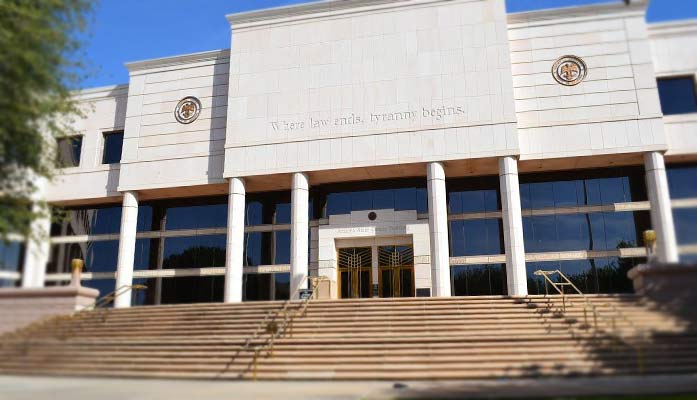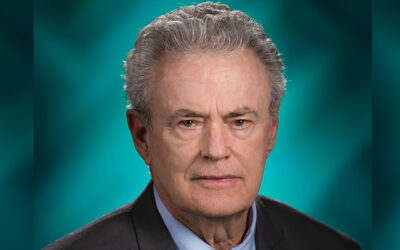By Matthew Holloway |
Goldwater Institute attorneys and former Arizona Supreme Court Justice Andrew Gould are set to argue against Proposition 211 at the Arizona Supreme Court on September 11th. The Goldwater attorneys and Justice Gould argue that Prop 211, which requires nonprofit organizations to disclose the personal information, including names and addresses, of all their donors, violates the Arizona State Constitution’s guarantee of privacy.
According to Goldwater, “Under that law, donors to organizations that spend money on initiative campaigns must have their names, addresses, phone numbers, and employment information placed on a publicly accessible government list—thereby inviting retaliation, ostracism, and even violence.”
Goldwater Vice President of Litigation Jon Riches told AZ Free News, “Arizona’s Proposition 211 is as un-American as it is dangerous. No one should be exposed to retaliation or violence simply for supporting causes they believe in. The law also violates Arizona’s Constitution, which provides stronger protections for freedom of speech and privacy than even the U.S. Constitution.”
He continued, “That’s why we at the Goldwater Institute believe the Arizona Supreme Court will ultimately strike down Proposition 211 and offer the first clear roadmap for mounting state constitutional challenges to donor-disclosure laws across the country.”
The legal challenge was brought by Goldwater Institute on behalf of the Center for Arizona Policy and the Arizona Free Enterprise Club, working on the basis that “Arizona’s constitution forbids the state from stripping people of their confidentiality as the price of supporting or opposing a political view.”
The Arizona State Constitution, unlike its federal counterpart, offers explicit protections for privacy in Article 2, Section 8, which reads, “No person shall be disturbed in his private affairs, or his home invaded, without authority of law.” Likewise, under Article 2 Section 6, the right for all Arizonans to “freely speak, write, and publish on all subjects,” when coupled with the landmark Supreme Court of the United States case Citizens United v. Federal Election Commission would seem to overwhelmingly uphold the right of Arizonans to donate privately to support or oppose a political cause.
As the late Justice Antonin Scalia observed, “The dissent says that ‘speech’ refers to oral communications of human beings, and since corporations are not human beings they cannot speak. Post, at 37, n. 55. This is sophistry. The authorized spokesman of a corporation is a human being, who speaks on behalf of the human beings who have formed that association—just as the spokesman of an unincorporated association speaks on behalf of its members. The power to publish thoughts, no less than the power to speak thoughts, belongs only to human beings, but the dissent sees no problem with a corporation’s enjoying the freedom of the press.”
In May, Scot Mussi, President of the Arizona Free Enterprise Club, echoed that sentiment writing, “We are thankful that the Arizona Supreme Court accepted review of this vital case for our First Amendment liberties. Both the U.S. Constitution and the Arizona Constitution guarantee citizens the right to speak freely, which includes the right to not be forced to speak. Prop 211 not only violates this right for donors by silencing them from supporting causes they believe in but impairs the speech of nonprofits like ours as well. We are hopeful that the Arizona Supreme Court will rule in favor of the Constitution after considering the merits of the case.”
Matthew Holloway is a senior reporter for AZ Free News. Follow him on X for his latest stories, or email tips to Matthew@azfreenews.com.








